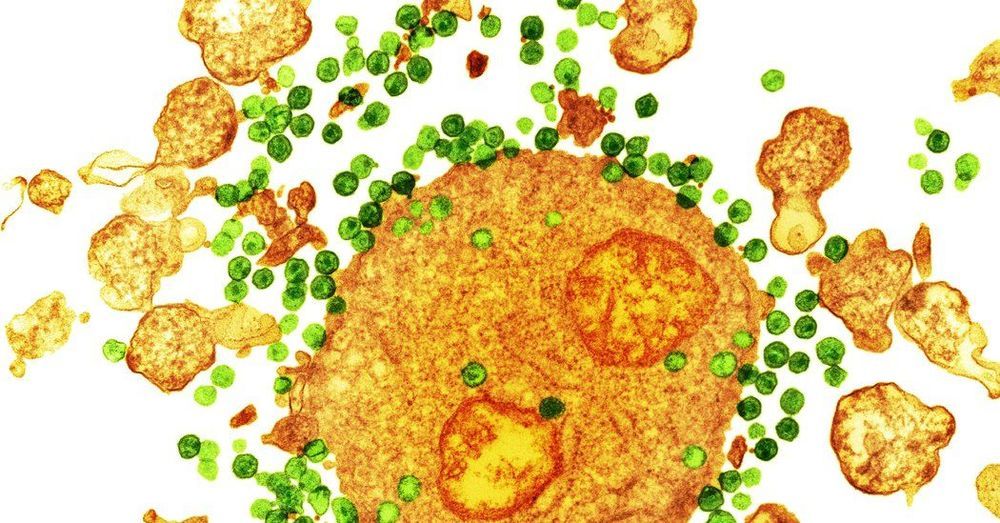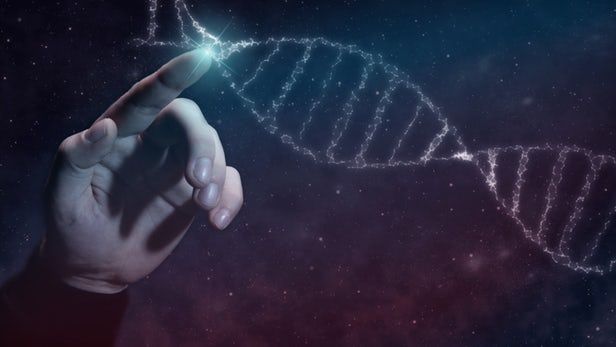Page 9063
Mar 5, 2019
How Much Of The Unobservable Universe Will We Someday Be Able To See?
Posted by Genevieve Klien in category: cosmology
As more time passes since the Big Bang, more of the Universe comes into view. But how much?
Mar 5, 2019
Remembering ENIAC, and the Women Who Programmed It
Posted by Mary Jain in category: computing
ENIAC was the world’s first electronic digital computer, and though it was glossed over in the history books, it was programmed by a team of six women. Remembering their contributions could inspire young women looking to break into the male-dominated tech industry.
Mar 5, 2019
Chinese developers’ New Year’s resolution – diversify into robotics, green cars and Beijing’s other pet projects
Posted by Derick Lee in categories: government, robotics/AI, transportation
To stay at the top of the tycoon pile, developers are quickly diversifying, embracing the government’s new pet industry – tech.
Mar 4, 2019
Soon, hundreds of tourists will go to space. What should we call them?
Posted by Genevieve Klien in category: space
Mar 4, 2019
Promising new pancreatic cancer treatment moves forward
Posted by Paul Battista in categories: biotech/medical, genetics
A study published today in the journal Nature Medicine led by researchers at Huntsman Cancer Institute (HCI) at the University of Utah (U of U) describes a new therapeutic approach with potential for patients with pancreatic cancer. These researchers discovered a combination drug therapy that may effectively combat the disease. HCI researchers first observed anti-cancer impacts in a laboratory setting and, subsequently, in its first use in a human patient.
The study has already progressed to a clinical trial that is now open at HCI and will soon be open at other sites in the United States. Details about the clinical trial, called THREAD, are available under National Clinical Trial Number 03825289. The combination therapy uses two drugs already approved for use by the Food and Drug Administration for other diseases, including cancer. The new drug combination is administered through pills taken orally.
Pancreatic tumors are characterized by mutations in a gene called KRAS. When KRAS is mutated in this way, it sends constant signals that promote abnormal cell division and growth in cancer cells. As a result, tumors grow out of control. At the same time, like all cells, pancreatic cancer cells must recycle their components to provide building blocks for new growth in an essential cell function known as autophagy. Previous studies to combat pancreatic cancer that were focused either on the role of KRAS or on impacting autophagy were not effective.
Visitors will get a chance to tackle the types of problems colonists might face on the real Mars.
Mar 4, 2019
PepsiCo’s top scientist is joining the fight to help you live forever
Posted by Paul Battista in categories: biotech/medical, life extension
The longevity sector is showing signs of being taken more seriously. On Tuesday, Mehmood Khan, vice chairman and chief scientific officer of PepsiCo, announced he’s joining Life Biosciences, a startup dedicated to “age-reversal.” Khan will become the startup’s CEO and a member of its board of directors.
Mar 4, 2019
First CRISPR therapy administered in landmark human trial
Posted by Quinn Sena in categories: bioengineering, biotech/medical
The first confirmed CRISPR gene editing clinical trial to take place outside of China is officially underway, after pharmaceutical companies CRISPR Therapeutics and Vertex revealed a human patient has been administered the experimental treatment targeting a rare blood disease.
In the world of social media, this is just the most recent panic over children’s time on places like Youtube. however, it’s important to note that many of these things ARE just hoaxes. As the article mentions, this hoax plays on the guilt some parents have over how much time their children spend on computer screens.
The real “Momo Challenge” is the terror of parenting in the age of YouTube. Here’s the truth of what we know.
















